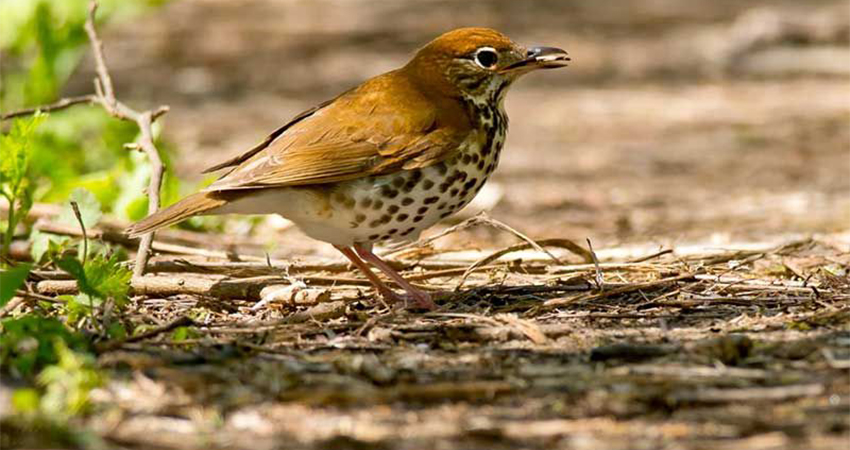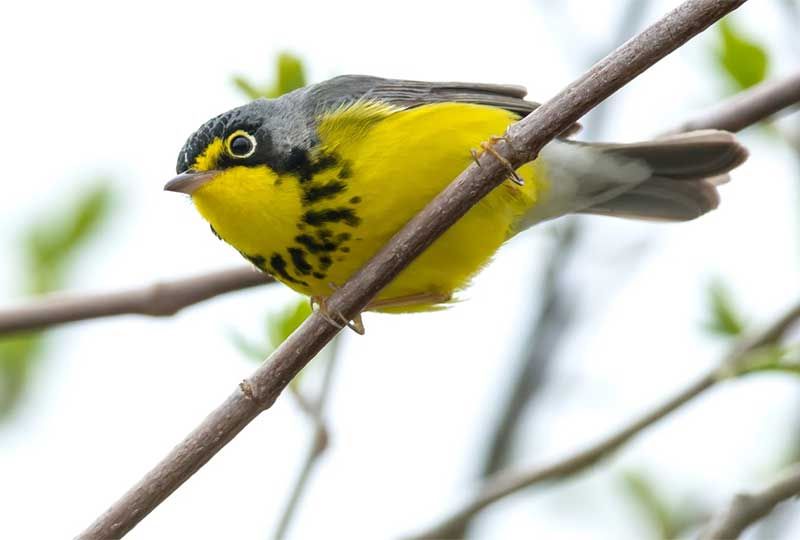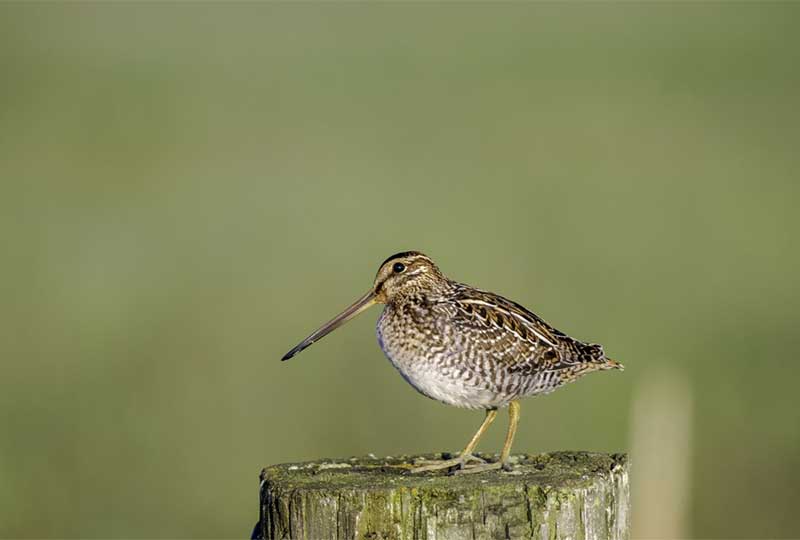Noble Horizons campus is home to many bird species and we’re proud to provide a diverse habitat for them and our residents enjoy observing them year round while outdoors or through Noble’s large windows. This summer we’ve hosted a bird blog to encourage people to go outdoors and connect to the natural world. In 2018, Eileen Fielding, Ph.D., director of Sharon Audubon spoke at Noble exploring the link between the preservation of birds and the environment. Recently, she spoke to a local community group about songbird decline in Connecticut, its causes, and what we can do to help.
Sharon Audubon Director Eileen Fielding described the declining status of CT songbirds in a recent presentation that outlined causes, effects, and potential remedies to our birds in crisis.
During the public Zoom event, sponsored by the Democratic Committee of Northwest Connecticut, Fielding referenced two 2019 studies that outlined declines in bird species in North America. The recent Audubon study of 389 bird species on the brink used data collected over time to model what climate change will do to bird habitat and breeding ranges.
Using the example of the Wood Thrush she consulted the Bird and Climate Visualizer and discovered changes of 1.5 and three degrees Celsius in summer temperatures, the latter of which would cause a disastrous loss of habitat for the Wood Thrush and other birds.
The other study published in Science magazine outlined the population losses of birds for the past 48 years. Fielding summarized, “Common and rare species and all biomes all experienced loss of 3 billion birds, a one-third decrease in bird population from 1970.”
Fielding outlined steps we can take to address the 50 species that Audubon classifies as “priority birds,” which means they are birds “of significant conservation need, for which our actions, over time, can lead to measurable improvements in status.” These are the species we have the opportunity to turn around with habitat management and other measures. In our area, Fielding reeled off numerous priority species, including Canada Warbler, American Woodcock, Cerulean Warbler, Prairie Warbler, Yellow-billed Cuckoo, and the Rose-breasted Grosbeak.
Actions we can take to reverse the decline in species include:
- Increasing diverse bird habitats on our own properties, since the majority of land in CT is privately-owned. This includes cover, native plant species which attract insects and worms that young birds need, and diversity in tree age and size
- Policies on the local, state and federal level that help protect birds and habitats
- Incentives to make it attractive for people to create bird-friendly environments.
She also discussed sharply reducing or eliminating pesticide use in private property; awareness of bird deaths attributed to domesticated cats who still have primal urges to hunt; how windows cause massive bird fatalities when birds crash into them; reducing plastic use; and shade-grown coffee (where there’s shade, there are trees) and many birds begin their long migration north migrate from south of the Equator, where coffee is grown.
Ending on a high note, she advocated getting outside for a bird walk, looking out your window and observing birds in your own yard, and participating in a citizen science (also known as community science) events sponsored by the Audubon Society.
If you want to learn more about the joys of birding and how to start, join our Noble Horizons Bird Blogger, Caleb May in a presentation at Scoville Library on Wednesday, July 22 at 7 p.m. Click here for more information.



